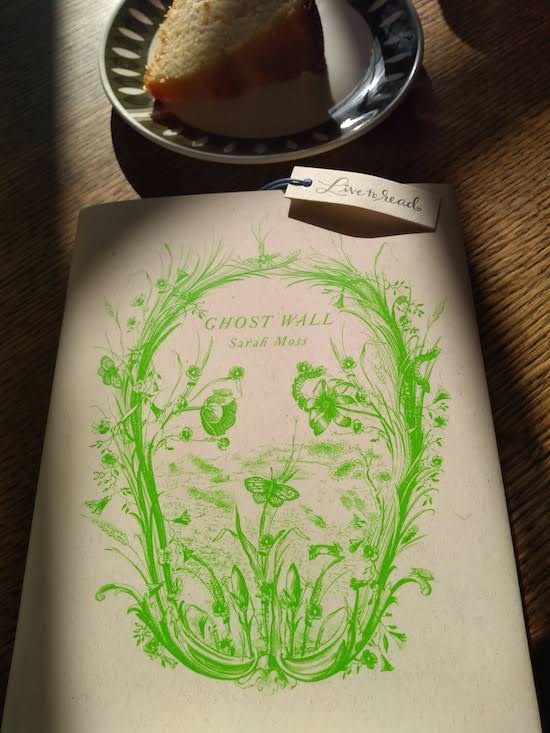January 14, 2019
Ghost Wall, by Sarah Moss

I’ve been avoiding bookshops lately (except for a trip to Type Books’ new location in The Junction in December!) with a focus on reducing the overwhelming number of books on my to-be-read shelf. Which I’ve been pretty successful at with a huge tower of reading completed over the holidays, and also a clear-out of more than a few books that I decided to finally accept that I would never read. And when I finished reading Did You Ever Have a Family, by Bill Clegg, on Saturday morning (acquired from a Little Free Library; has been sitting on my shelf for months; is so incredible but also very sad) and we had no further plans for the day, I decided that what I really, really needed was a bookshop venture, and my family was kind enough to accompany me, obviously with the promise of snacks.
And what a wonderful thing, for me at least, although probably not my family, to arrive at the bookshop without an idea of what I was looking for. Something more uplifting than Did You Ever Have a Family, was my premise, though I wasn’t exactly successful on that front, but then a book need not be uplifting when it is brilliant, original and completely affecting. The book was Sarah Moss’s new novel, Ghost Wall, which only just came out (super exciting—I tend to be either six months or decades behind on all the newest things) and I’d read the review in the Toronto Star that morning. Beginning my Sarah Moss discovery, which I’ve been longing to embark upon on reading Rohan Maitzen’s reviews of her other books, which sound as intriguing as they are wide-ranging.
It’s a slim little novel whose design (in Canada, at least) is delicate and exquisite, a book made up of all kinds of competing tensions. Silvie is a teenager from Northern England whose bus driver father is an Iron Age enthusiast in his spare time, and she’s been raised on his rambles and fascinations of ancient Britons, and therefore knows how to forage for bilberries, which makes her an object of fascination for the university students her family is spending her dad’s annual leave with on their experiential archeology course. The professor and Silvie’s dad couple their skills and knowledge, leaving Silvie with the students, just a few years older than she is, worldly in a way she’s never been able to fathom. Her time with them is a brief reprieve from her father’s rigid control, but then she’s defensive around them, knowing they’re judging her parents’ accents and background. She also knows that aligning them too much will provoke her father’s wrath, whose force and dangerousness gradually becomes more apparent as the narrative progresses and underlines the novel’s idyllic setting and celebration of the natural world with something much more sinister.
Unabashedly feminist, Ghost Wall dares to question what people are really reaching for when they’re yearning for a simpler time, for an authentic kind of culture, or whiteness, or Britishness. Just what is fundamental about who we are and where we come from, and who gets to be in charge of that? It’s sharp, fast-paced, and disturbing, an exercise in minimalism and subtly. I loved it.






i cannot fathom how many bookstores must be nearby you, or how you have the time, but i LOVE that you do, and LOVE imagining how … and so glad that you do…